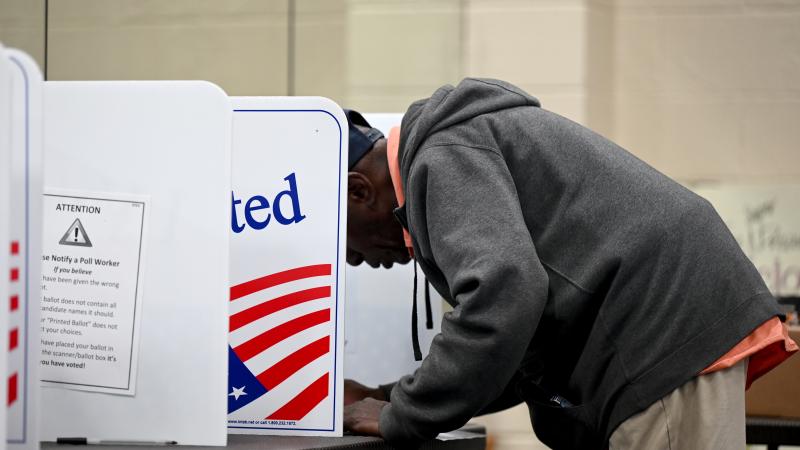Republican Judge Jefferson Griffin concedes defeat in 2024 North Carolina Supreme Court election
“While I do not fully agree with the District Court’s analysis, I respect the court’s holding,” Republican Judge Jefferson Griffin said.
Republican Judge Jefferson Griffin on Wednesday conceded defeat in the 2024 North Carolina Supreme Court election.
He conceded the race to Democratic incumbent Judge Allison Riggs after months of lawsuits challenging votes.
Griffin, a North Carolina Court of Appeals judge, made the announcement two days after a federal judge ordered the state's Board of Elections to certify the results of the election, which showed Riggs was the winner, NBC News reported.
“While I do not fully agree with the District Court’s analysis, I respect the court’s holding – just as I have respected every judicial tribunal that has heard this case,” Griffin said in his concession announcement. “I will not appeal the court’s decision.”
Riggs responded: "After millions of dollars spent, more than 68,000 voters at risk of losing their votes, thousands of volunteers mobilized, hundreds of legal documents filed, and immeasurable damage done to our democracy, I’m glad the will of the voters was finally heard, six months and two days after Election Day."
More than 5.5 million ballots were cast in the race, and a full machine recount and a partial hand recount of the election showed Griffin trailing behind Riggs by 734 votes.
On election night, Griffin led Riggs by 9,851 votes. Provisional and absentee ballots that qualified were then added to the totals, which swung the race by 10,585 votes, resulting in a win for Riggs.
Griffin and state Republicans argued in their lawsuits that 60,000 ballots should be rejected in the election because ineligible voters fraudulently cast them.
The allegations included voters not having a Social Security or a driver’s license number in their voter registration records and overseas voters having failed to provide photo identification with their ballots and haven’t lived in North Carolina.
Last month, the state Supreme Court ruled the majority of the contested ballots must be counted. The court, in a 4-2 decision, determined that ballots containing missing information, including Social Security numbers, were still valid. However, the ruling also determined some ballots could be struck, including thousands of overseas and military ballots on which voters needed to prove their identity.















